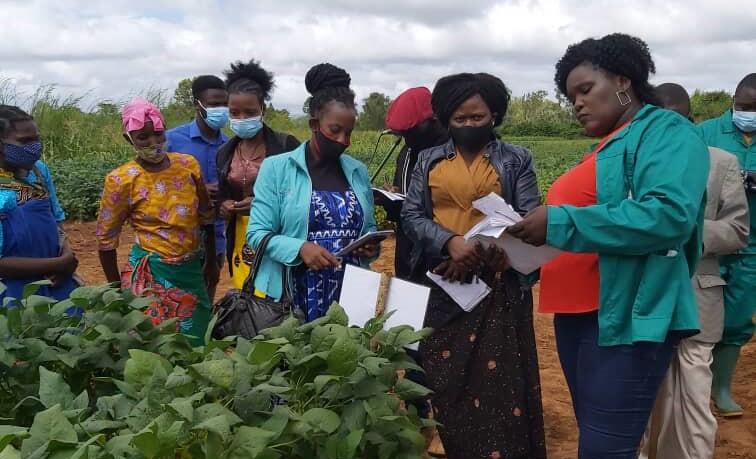New public-private partnership brings soybean technology to Africa

URBANA, Ill. –The Feed the Future Soybean Innovation Lab (SIL) at the University of Illinois has partnered with Argentinian company Rizobacter to bring soybean technology to 26 African countries. This unique public-private partnership provides the SIL Pan-African Soybean Variety Trial (PAT) network with access to a cutting-edge inoculant product, Rizoliq TOP, for use in the Africa-wide PAT platform.
The partnership also provides Rizobacter, a leading global producer of inoculants, with access to new African markets through the PAT network, which includes seed companies, nucleus growers, processors, national agricultural research stations, universities, and commercial farmers.
Soybean producers apply inoculant to the seed before planting to ensure the right type of bacteria for the plant are present in the soil. These bacteria help the soybean plant form nodules on the root system, allowing it to convert nitrogen from the atmosphere into a compound that enables plant growth and the formation of beans.
"Currently as a company we are directly or indirectly supplying inoculant products in South Africa, Mozambique, Zambia, Zimbabwe, Botswana, Malawi, Tanzania, Uganda, Kenya, Ghana and Sierra Leona. And we are actively working on registration and looking for opportunities in many other countries,” says Ignacio Ardanaz, Rizobacter’s Business Development Manager for Africa and India. “It is a pleasure for Rizobacter to join SIL on the amazing work the lab is doing across Africa."
Rizoliq TOP is formulated with Osmo Protection Technology, which provides the inoculant with a higher concentration, a more robust physiological state, and greater tolerance to stresses therefore improving the survival of microorganisms on the seed. The higher concentration of Bradyrhizobium japonicum ensures that the radicle of the germinated seed is quickly infected, accelerating and maximizing the process of biological fixation of nitrogen.
“This partnership provides the soybean industry with access to a high-quality source of inoculant, which is an extremely effective and low-cost solution to improving soybean productivity,” says Peter Goldsmith, Director of the Soybean Innovation Lab. “It also helps growers of other legume crops gain access to this important resource by introducing the supplier, Rizobacter, to wider markets.”
The Rizobacter team is in regular communication with the SIL PAT network across the 26 trial countries and 115 locations to ensure the Rizoliq TOP product is effective for the various operators, who range from seed companies and commercial farmers to research stations and institutes.
Through public-private partnerships like this, SIL charts a sustainable path for the future of the PAT platform, which fast-tracks the identification, registration, and release of new, high-yielding soybean varieties sourced from a global network of public and private-sector seed suppliers.
About Soybean Innovation Lab
The Feed the Future Soybean Innovation Lab (SIL) works to improve food security and nutrition around the world. SIL is a team of technical soybean experts that provide evidence-based innovations, tools, and technologies across the value chain to enable sustainable livelihoods through profitable soybean production and utilization across Sub-Saharan Africa.
The Soybean Innovation Lab is housed in the Department of Agricultural and Consumer Economics (ACE), College of Agricultural, Consumer and Environmental Sciences (ACES) at University of Illinois.